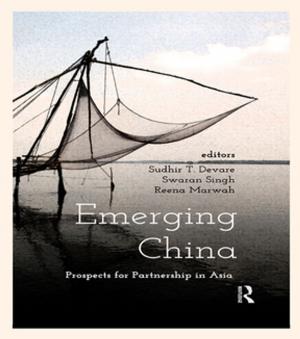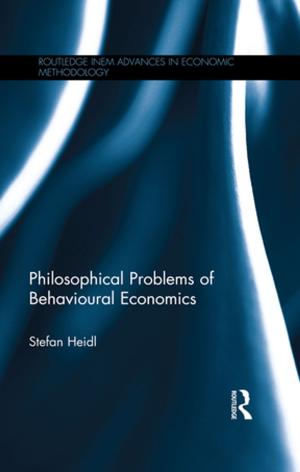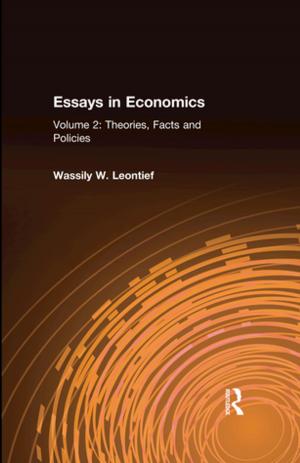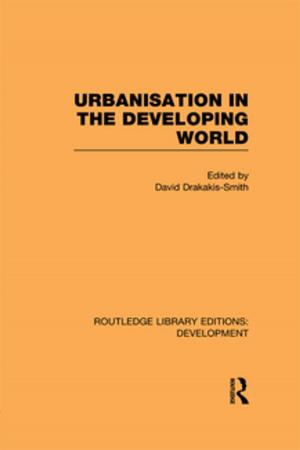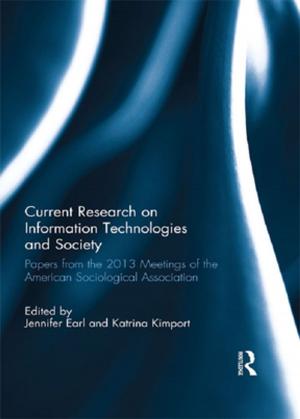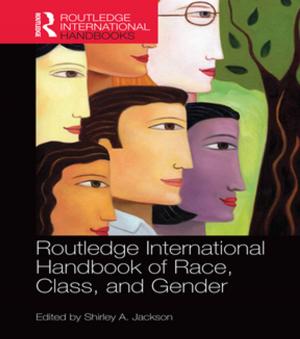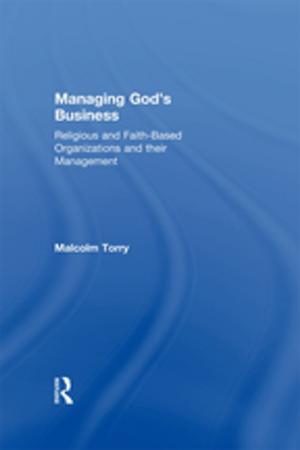The Erasure of Arab Political Identity
Colonialism and Violence
Nonfiction, Social & Cultural Studies, Political Science, Politics, Practical Politics, Social Science, Cultural Studies, Ethnic Studies| Author: | Salam Hawa | ISBN: | 9781317390053 |
| Publisher: | Taylor and Francis | Publication: | January 20, 2017 |
| Imprint: | Routledge | Language: | English |
| Author: | Salam Hawa |
| ISBN: | 9781317390053 |
| Publisher: | Taylor and Francis |
| Publication: | January 20, 2017 |
| Imprint: | Routledge |
| Language: | English |
This book explores the long history of the evolution of Arab political identity, which predates the time of the Prophet Muhammad and is characterized by tolerance, compassion, generosity, hospitality, self-control, correct behaviour, equality and consensus. The author argues that present-day struggles in many Arab countries to redefine polities and politics are related to the fact that the underlying political culture of the Arabs has been overridden for centuries by successive political regimes which have deviated from the original political culture that the Prophet adhered to. The book outlines the political culture that existed before Islam, examines how the Conquests and the rule of the early dynasties (Umayyad and Abbasid) of the Islamic world found it necessary to override it, and analyses the effect of rule by non-Arabs – successively Mamluks, Ottoman Turks and Western colonial powers. It discusses the impact of these distortions on present day politics in the Arab world, and concludes by appealing for a reawakening of, and respect for, the cultural elements underlying the origins of Arab political identity.
This book explores the long history of the evolution of Arab political identity, which predates the time of the Prophet Muhammad and is characterized by tolerance, compassion, generosity, hospitality, self-control, correct behaviour, equality and consensus. The author argues that present-day struggles in many Arab countries to redefine polities and politics are related to the fact that the underlying political culture of the Arabs has been overridden for centuries by successive political regimes which have deviated from the original political culture that the Prophet adhered to. The book outlines the political culture that existed before Islam, examines how the Conquests and the rule of the early dynasties (Umayyad and Abbasid) of the Islamic world found it necessary to override it, and analyses the effect of rule by non-Arabs – successively Mamluks, Ottoman Turks and Western colonial powers. It discusses the impact of these distortions on present day politics in the Arab world, and concludes by appealing for a reawakening of, and respect for, the cultural elements underlying the origins of Arab political identity.

